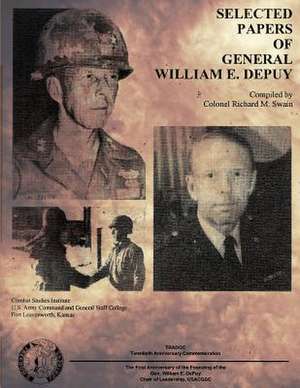Selected Papers of General William E. Depuy
Autor Richard M. Swain Editat de Donald L. Gilmore, Carolyn D. Conwayen Limba Engleză Paperback
Preț: 325.37 lei
Nou
Puncte Express: 488
Preț estimativ în valută:
62.26€ • 65.30$ • 51.83£
62.26€ • 65.30$ • 51.83£
Carte disponibilă
Livrare economică 11-25 martie
Preluare comenzi: 021 569.72.76
Specificații
ISBN-13: 9781479381593
ISBN-10: 1479381594
Pagini: 490
Dimensiuni: 216 x 279 x 25 mm
Greutate: 1.13 kg
Editura: CREATESPACE
ISBN-10: 1479381594
Pagini: 490
Dimensiuni: 216 x 279 x 25 mm
Greutate: 1.13 kg
Editura: CREATESPACE
